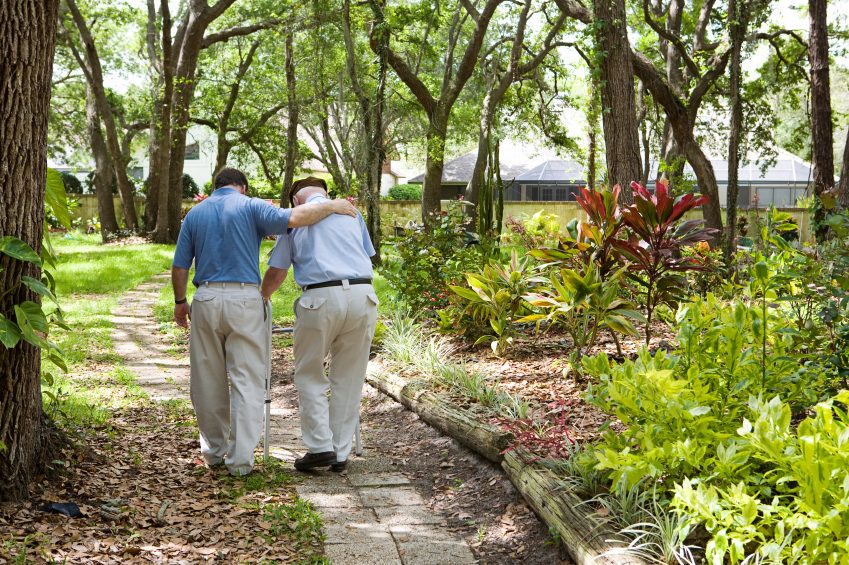Physician
The physician who remains the patient’s primary doctor and participates in the plan of care.
Hospice Medical Director
Oversees the plan of care and advises the Hospice Team.
Role of the Hospice Nurse
Scissortail Hospice nurses specialize in caring for patients with a life-threatening illness and have specialized training in pain control and symptom management. Our Hospice nurse will assist you in managing your loved one’s care while on Hospice by:
- The nurse will assess the patient’s physical needs during home visits at least two times per week
- Answer questions about the disease process and about what to expect as the illness progresses
- Instruct the patient and caregiver on how to take their medications
- Suggest physical comfort measures and other helpful skills
- Help arrange for your medications, equipment and needed services
- Collaborate with other team members to meet specific needs
Role of the Home Health Aide
The primary responsibility of the home health aide is to provide personal care based on the nurses written POC and may include:
- Assist with bathing, grooming and dressing
- Shampoo and hair care
- Shaving
- Catheter care and toileting
- Skin Care
- Finger and toenail clipping for all patients unless patient is diabetic
- Change bed linens and clean patient care area
- Light housekeeping, if patient does not require personal care
- Provide emotional support and socialization to the patient and their family
Role of the Chaplain:
Pastoral care to the suffering enables the Chaplain to minister to the whole person, spirit, soul and body. The Chaplain’s role is not to explain, cure or eliminate disease. Rather, it is to journey alongside the person dealing with a life limiting illness and their family, meeting them in the spiritual and emotional pain that often accompanies terminal illness. As a means to this end, the Chaplain brings companionship and assists each patient and family in moving into the open-ended future with hope and faith. Pastoral Care Services include:
- Provision of spiritual/religious support, without bias, for patient and caregivers
- Acknowledgement and support of the individual’s beliefs and spiritual concerns
- Exploration of how to prepare for death "letting go" of life as we’ve known it
- Assistance with accepting the mysteries of life
- Administration of sacraments when desired
- Officiate at funeral, memorial, and/or graveside services upon request
- Bereavement after-care is provided through personal contact, literature and support
Bereavement Coordinator:
Bereavement services focus on recognition that grief and loss continues for family members and significant others long after their loved one has died. Scissortail Hospice provides bereavement support for bereaved families for a minimum of 13 months following the death of their loved one. Services include regular mailings about loss, grief, and ways to cope with them; periodic telephone calls to offer resource information and support; home visits as needed or desired; and bereavement support group information. The bereavement coordinator is available to assist you through this difficult time 24 hours a day 7 days a week.
Role of the Social Worker:
The primary responsibility of the Social Worker is to provide emotional and supportive care to the patient and their families by:
- Assessing needs for coordination with community resources
- Reinforcing medical recommendations
- Addressing end of life decisions such as DNR, Advanced Directives, Power of Attorney, Funeral Home, etc.
- Addressing any other concerns of patient and/or family that impede quality of life
Role of the Hospice Volunteers:
Volunteers are an important and integral part of the Hospice team. The following are just a few examples of roles the volunteer may fill. Each volunteer/patient relationship is unique; therefore, the needs and limits of the patient, family and volunteer should be discussed and mutually agreed upon. In addition, be assured that the volunteer will respect the confidentiality of the patient and the family.
- Companionship and Support- A volunteer may listen, reassure, share worries and concerns, hold a hand or just sit quietly. Other activates might include reading, listening to music, playing games or watching TV.
- Practical Services and Errands- Some volunteers may offer to do light chores such as doing an occasional load of laundry or preparing a meal for the patient. They may also be able to pick up supplies or groceries from the store.
- Caregiver Relief- A volunteer may stay with the patient during scheduled periods of time when the caregiver needs to be away such as to attend to personal matters or attend a support group. However, the volunteer is unable to administer medication of any kind when staying with a patient.
- Spiritual Support- if asked, the volunteer may pray with the patient or family, read from the Bible or other inspirational books and bring types of special music or worship services. They may encourage the patient/family to communicate their faith, fears or anger with the Hospice Chaplain and other team members.

*Those seeking to volunteer, who have had a recent loss, must wait one year prior to being accepted for service.
Other Professionals As Needed.
If you don’t feel hospice services are appropriate for you please click here (Link to ONHL medical home health website) for information on home health services.